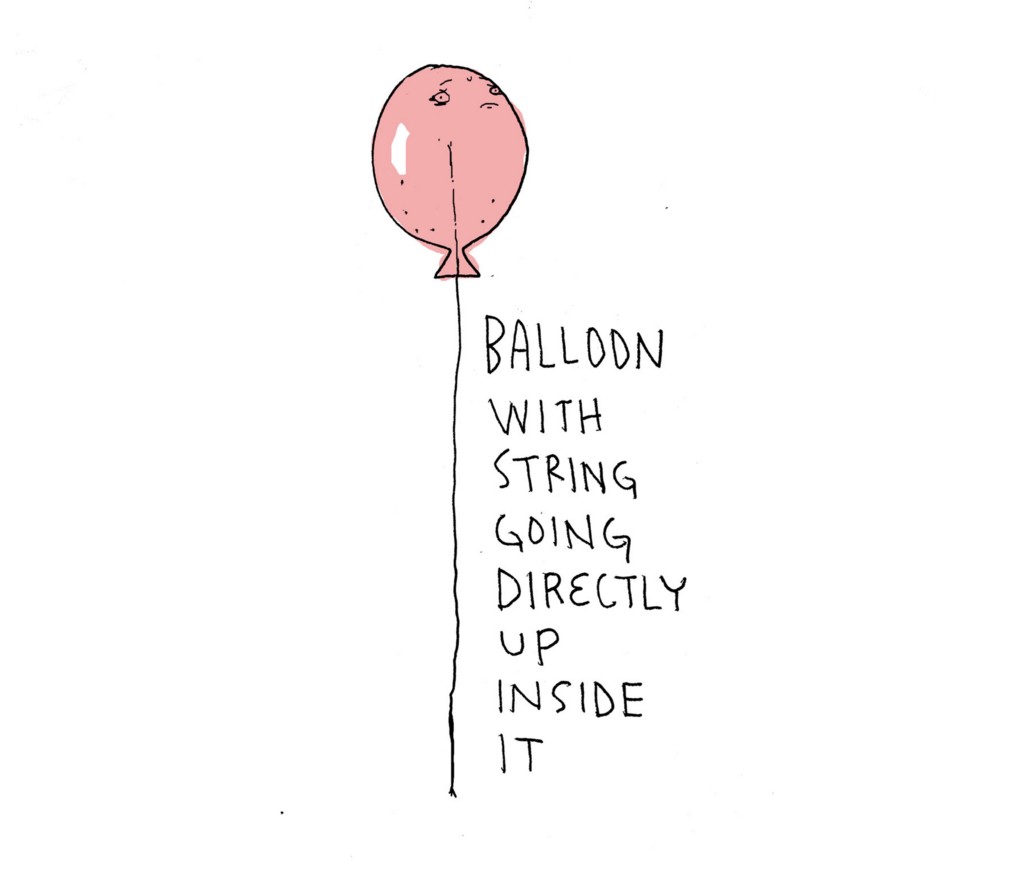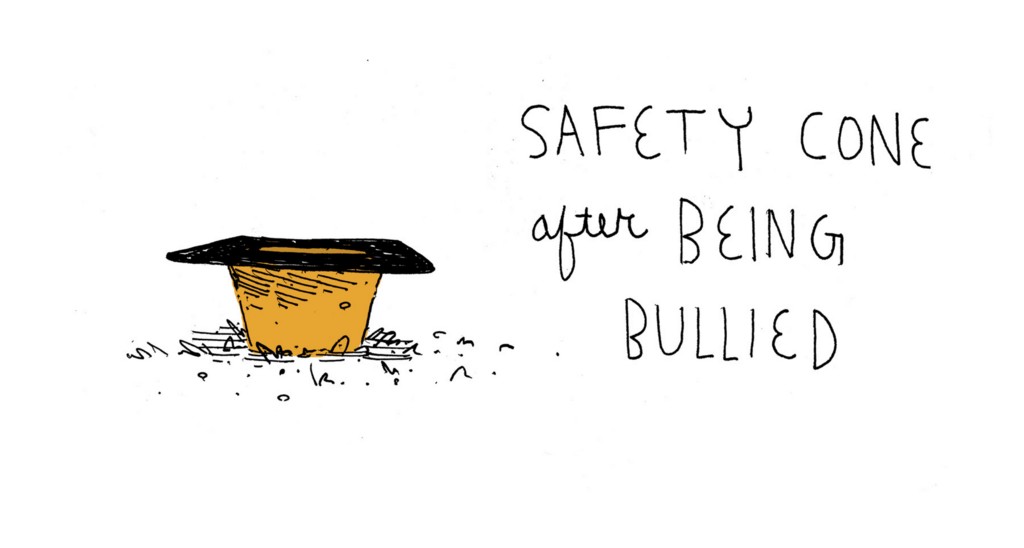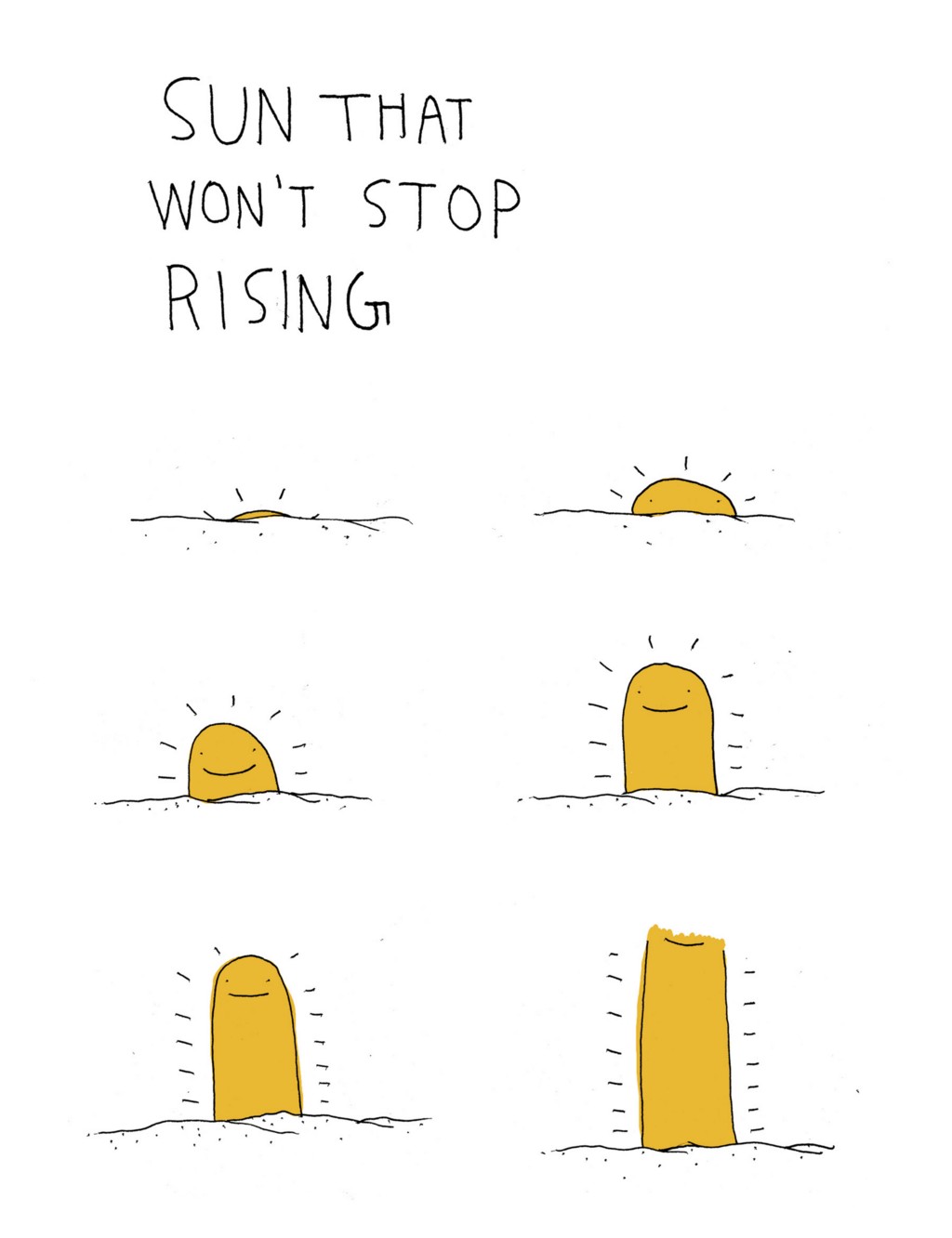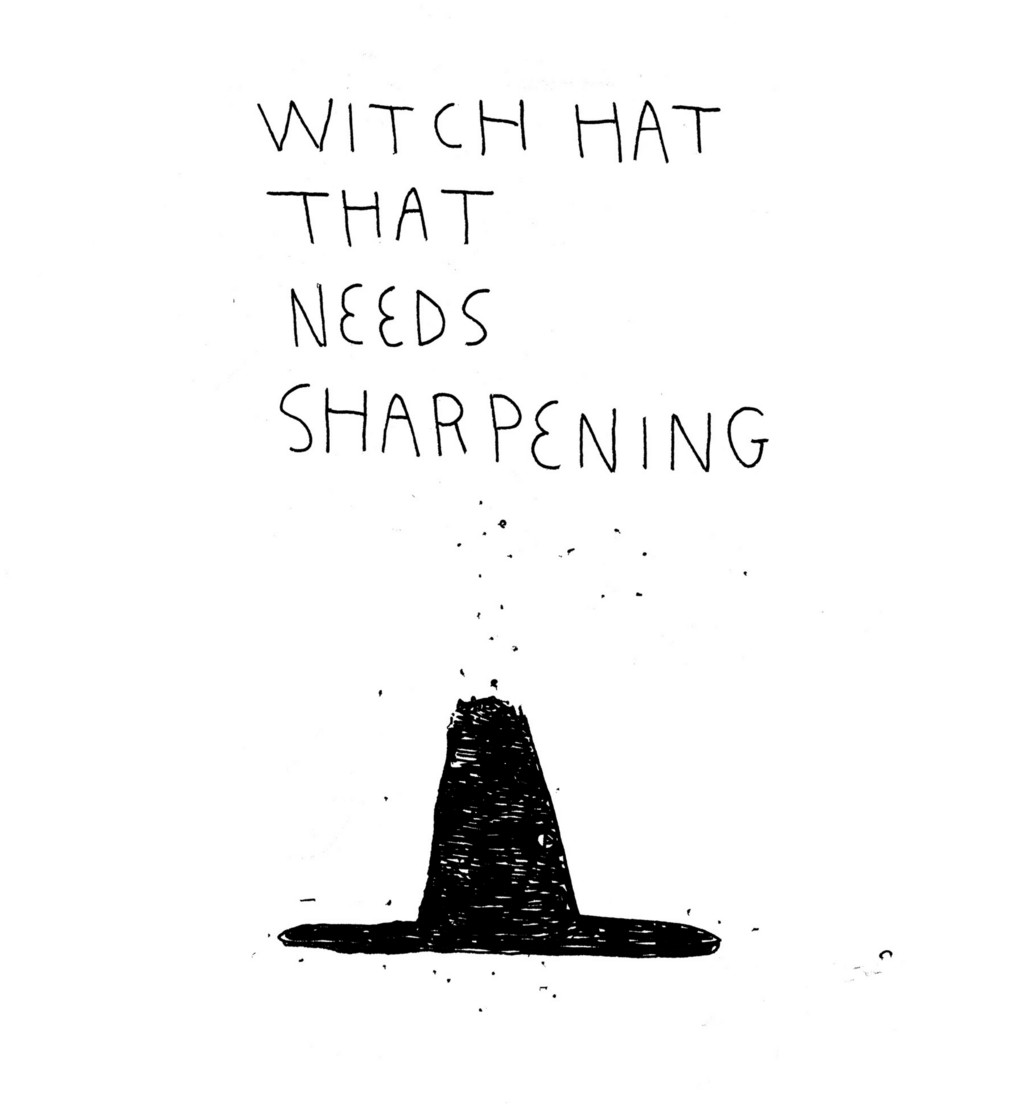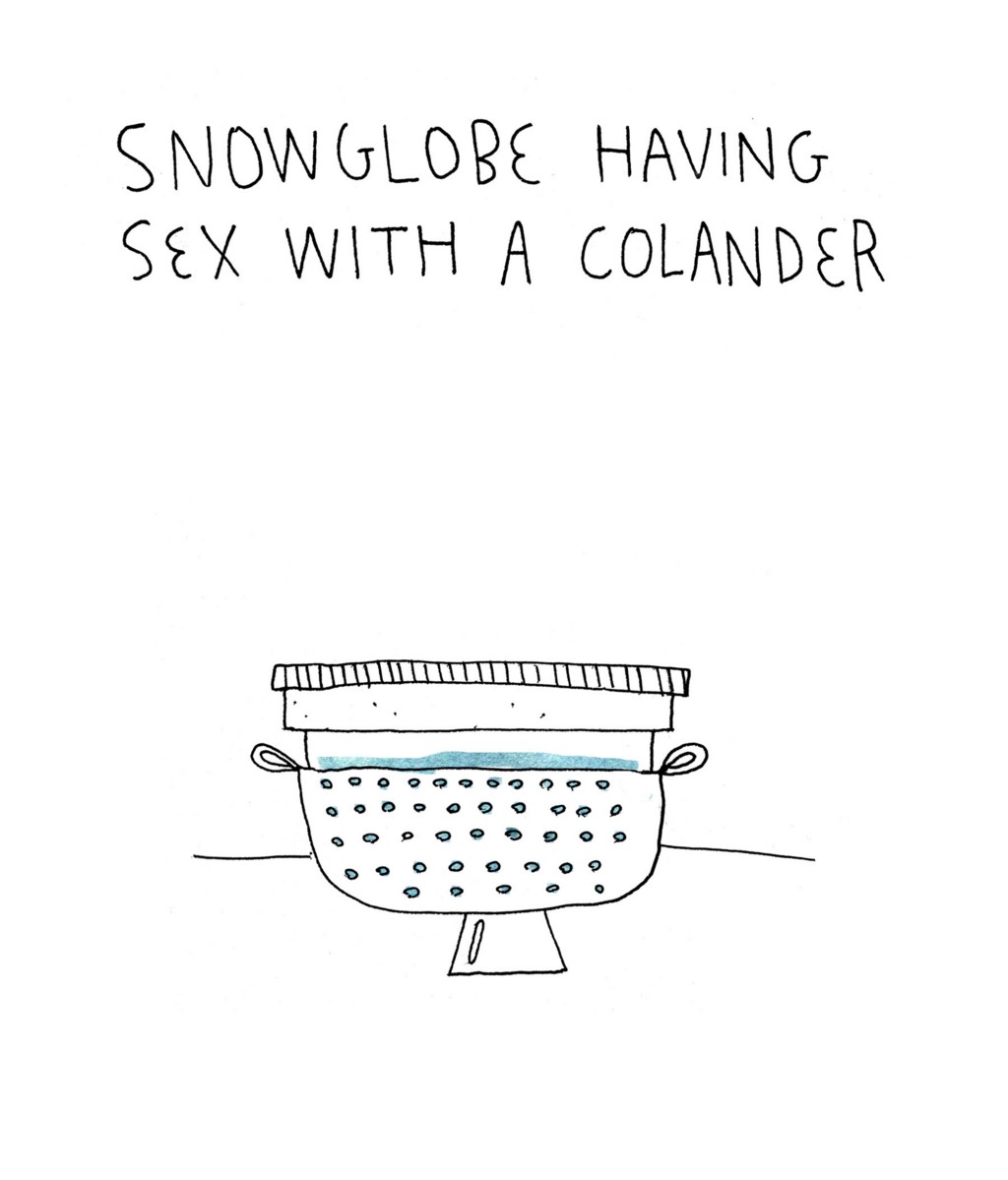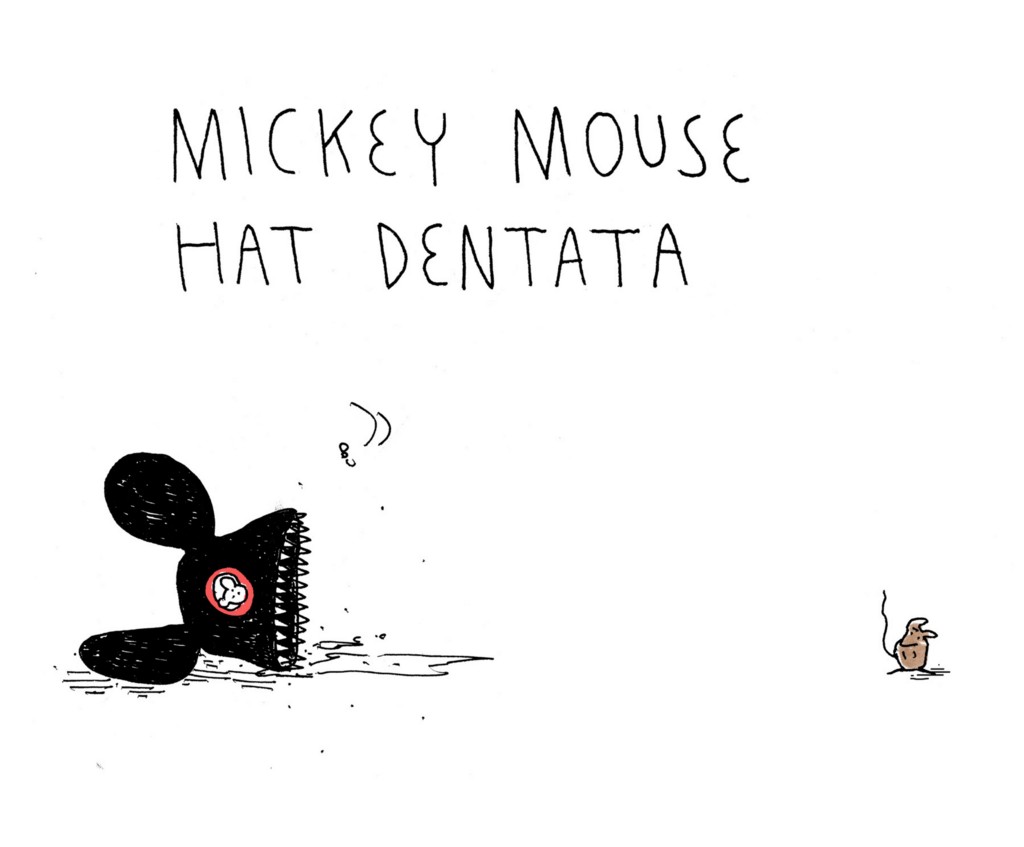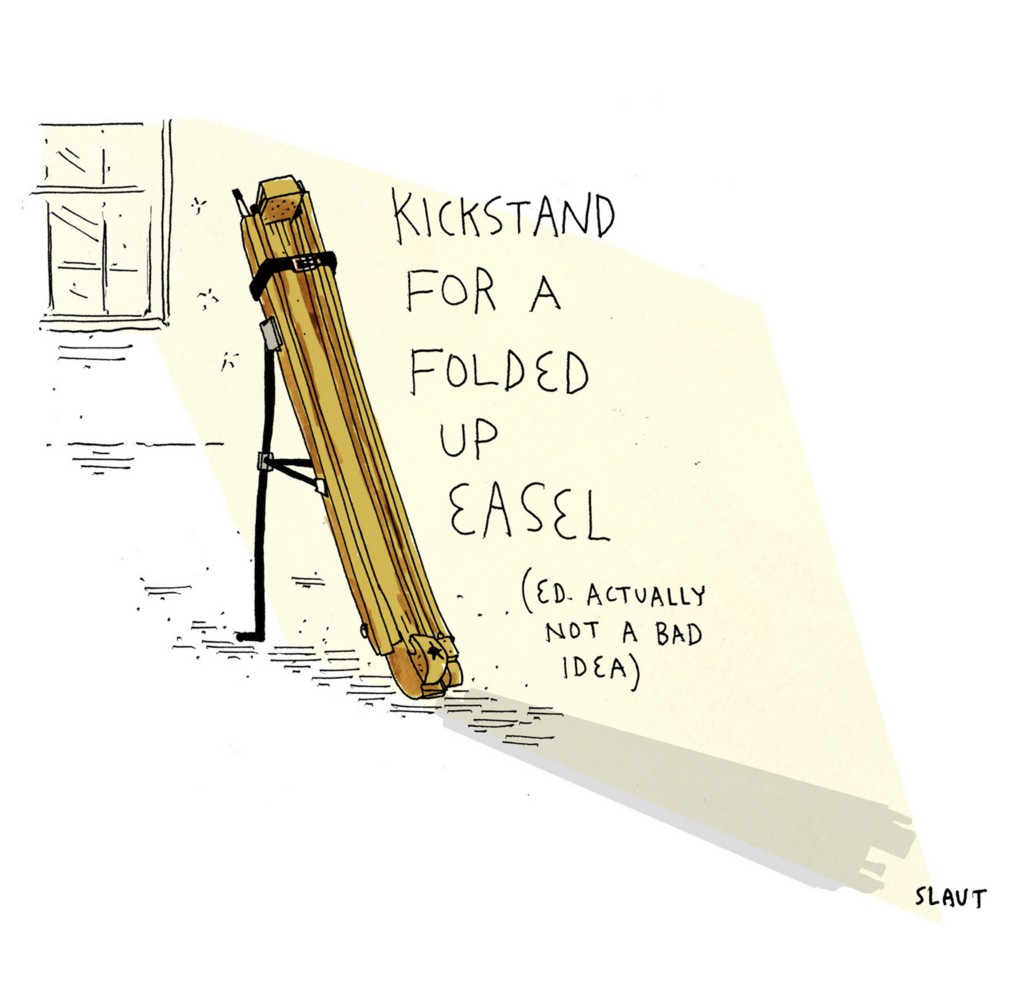Max Würden, "Fernfeld"
Think this week was rough?

Think back to Monday. You can’t, can you? It’s too far away, it hurts too much. Well, let me remind you: On Monday we were still processing the FBI revelation of the Anthony Weiner email thing. Remember that? The World Series wasn’t even halfway over. Impossible to believe! It was actually Halloween. How much hard living have you gone through in the four days since then? Months? Years? Now think about how much hard living you’re going to go through in next four days. You can’t, can you? All you can really conceive of is the weekend. And rightly so. Because Monday is going to be a nightmare and Tuesday is going to make Monday look like some beautiful dream. It’s going to get so, so dark. Hold tight to the weekend, is what I’m saying, because it’s all you’ve got.
I will also say this: Later in November, if we make it, Kompakt will release the latest installment in their amazing Pop Ambient series. Think of it as the reward we will get for coming through all the agony that is about to occur. If, in fact, we come through it. If we don’t get there at least there is this video available. Enjoy.
New York City, November 2, 2016

★★★ What looked like a gray sky was just blue waiting for the sunrise. The arriving light pierced the black veil of netting under which workers were moving to prepare the emptied, once-modern house of worship to have a luxury tower dropped on its site. Green-brown leaves, trampled soft and shiny on the wet sidewalk, took on the character of dog turds, and perhaps the reverse. The temperature was a whole new random number, the atmosphere newly humid. Contrails stretched and warped against the sky. The door of the bar was open to let in the air, which was moving in currents neither identifiably warm nor cool.
When Truth Falls Apart
How do we restore consensus in an age so divorced from fact?
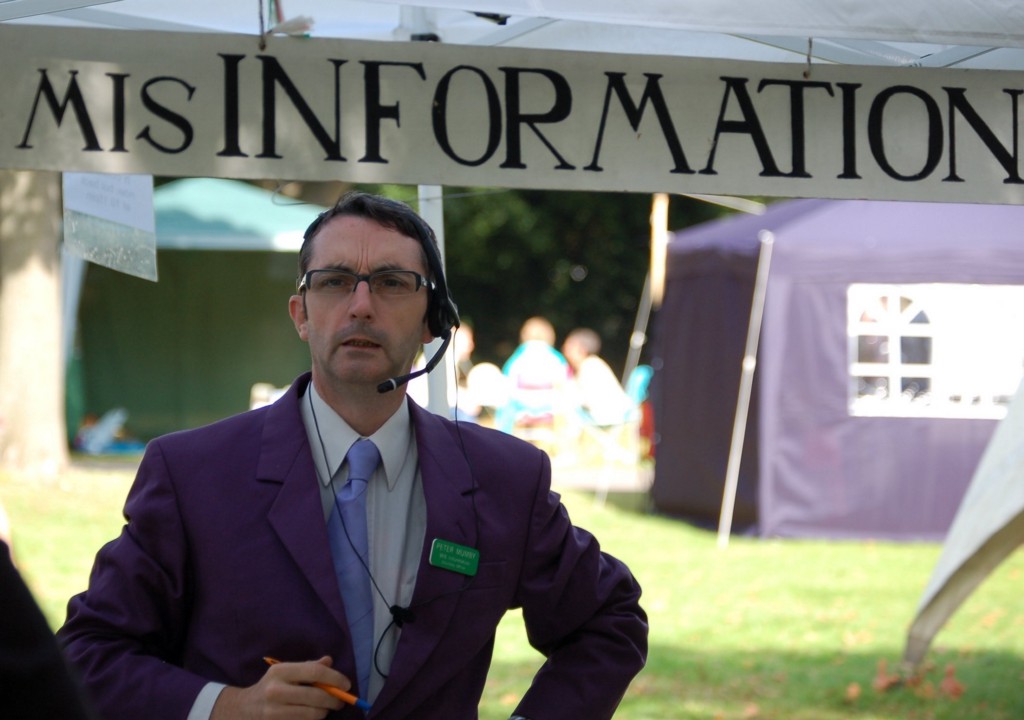
If I have recognized the spread in drug warnings and financial doublespeak, where the corporate use of language approaches the absurd, where the shell of a communicative form is used to foreclose communication, I have also recognized it in forms of poetry that deliberately push us to confront the contingency and craziness of our culture’s use and abuse of words.
—Ben Lerner, “Contest of Words,” Harper’s Magazine October 2012
The lunatic notion of a “post-truth” or “post-fact” society gained traction during the administration of George W. Bush, whose lackeys lied their heads off so spectacularly and for so long, with the aid of the effectively state-sponsored Fox News Network. Mocked as “truthiness” by Stephen Colbert in 2005, and soberly analyzed in various books, the key idea of the “post-truth” society was this: if a given public utterance had sufficient appeal — emotional, political or otherwise — its empirical truth was immaterial. What we can be persuaded to wish to believe, in other words, is as good as the truth. How else to explain the long currency of such whoppers as the connection between Iraq and 9/11, the likely cost and duration of the “necessary” wars in Afghanistan and Iraq, “the smoking gun that would be a mushroom cloud,” the lawfulness of torture, and of domestic surveillance, etc. ad nauseam?
The peculiar mendacity of that catastrophic presidency left us with worse problems than a bunch of lies to put straight and reflect on. There’s a broken trust to restore — to the extent that it’s possible to replace toxic cynicism with healthy skepticism — in media and in government.

In 2004, a decorated Vietnam War hero ran for the presidency. This was an inconvenient fact for George W. Bush, his draft-dodging preppie opponent. It was vital, then, for the Republicans backing him to find a way to tarnish John Kerry’s service record while still noisily maintaining their “respect for the troops,” whom they were in the process of sending to the Middle East to be blown to bits by the thousand. The Republicans succeeded in discrediting Kerry through a new type of propaganda that effectively destroyed the obvious and instinctive assumption that a battle-hardened veteran and pacifist — and not the soft rich boy — would be better qualified to lead the country out of war.
The story of Kerry’s treatment in the media in the 2004 campaign provides a clear illustration of the cleverness and novelty of the Republican attack against him. Many politicians have resorted to the same playbook in the years since. As we enter the home stretch of this substantially more ghastly election, a review of their strategy, which I will call dismediation, is in order.
Dismediation is a form of propaganda that seeks to undermine the medium by which it travels, like a computer virus that bricks the whole machine. Thus, for example,
- Information: John Kerry is a war hero who was awarded three Purple Hearts, a Bronze Star and a Silver Star;
- Misinformation: John Kerry was never wounded in the Vietnam War;
- Disinformation: John Kerry is a coward;
- Dismediation: ‘Swift Boat Veterans for Truth’ are disinterested sources of information about John Kerry, equivalent in integrity to any other source that might be presented on the evening news.
These four narratives were distributed simultaneously across various channels during the 2004 election, though only one of them (the first) is true. To begin with, there was some criticism of how readily Purple Hearts were handed out during the Vietnam war. Two of Kerry’s wounds didn’t require time off duty, though that doesn’t matter a bit: the rules governing the award are quite clear that even the slightest wound sustained in enemy combat qualifies for the medal. That’s how the misinformation that Kerry hadn’t been wounded was spread, perhaps unintentionally giving a biased impression of his service. Accusations of cowardice followed, and these were disinformation — false information planted by partisans for Bush.
When he came home, Kerry became one of the best-known protestors against the Vietnam War. He testified in 1971, at the age of twenty-eight, before the Senate Committee on Foreign Relations as a leader of the group Vietnam Veterans Against the War:
In our opinion… there is nothing in South Vietnam, nothing which could happen that realistically threatens the United States of America. And to attempt to justify the loss of one American life in Vietnam, Cambodia, or Laos by linking such loss to the preservation of freedom […] is to us the height of criminal hypocrisy, and it is that kind of hypocrisy which we feel has torn this country apart.
(Thirty-eight years hence, he would chair the committee he addressed on that day.)
The portion of the electorate predisposed against dirty hippie pacifists was as eager to hear criticism of Kerry then as it would be in 2004, but by the time of his campaign, many were unaware of either Kerry’s bravery in battle or his anti-war activism. This relative ignorance gave Bush Republicans an opening. The Swift Boat group was financed by Bob J. Perry — a rich Republican donor and associate of Karl Rove’s — and real estate tycoon Harlan Crow, a trustee of the George Bush Presidential Library Foundation. Together with Houston lawyer and former Swift Boat commander John O’Neill and conservative author Jerome Corsi, they cobbled together a book full of whoppers called “Unfit for Command.”
They also hired the guys who took down Michael Dukakis to make TV commercials attacking Kerry’s service. Swift Boater William Schachte shamefully insinuated that Kerry had deliberately wounded himself in order to secure a quick discharge. By the time the Kerry campaign realized people were paying attention to the Swift Boaters, the damage was done. Kerry had risked his own life in combat to save others, but a circus troupe of charlatans had sown the requisite doubts in the American electorate.
“Only in an election year ruled by fiction,” wrote Times columnist Frank Rich, “could a sissy who used Daddy’s connections to escape Vietnam turn an actual war hero into a girlie-man.” The lasting harm of this unfortunate episode, however, was not to Kerry’s reputation or to his candidacy. It was that afterward, millions of minds were uncertain as to what really constitutes “news,” or “reporting,” or “fact-checking.” This state of uncertainty hasn’t ever been adequately addressed, let alone mended.

In other words, the problem with my Republican relatives isn’t what they think of Fox News; everybody knows it’s propagandistic. The real problem is what Fox News et al., over time, have made them think of NPR, or MSNBC, or the New York Times. The Swift Boat style of twisting the facts has poisoned the well of public discourse for a whole generation of American adults — for all of us — by persuading so many that the confected “news” peddled on Fox is more or less equivalent to that on any other channel.
Dismediation isn’t discourse. It doesn’t disinform, and it’s not quite propaganda, as that term has long been understood. Instead, dismediation seeks to break the systems of trust without which civilized society hasn’t got a chance. Disinformation, once it’s done telling its lie, is finished with you. Dismediation is looking to make you never really trust or believe a news story, ever again. Not on Fox, and not on NPR. It’s not that we can’t agree on what the facts are. It’s that we cannot agree on what counts as fact. The machinery of discourse is bricked. That’s why we can’t think together, talk together, or vote together.
The success of dismediation projects like Fox News, Drudge Report and Rush Limbaugh’s radio show set the stage for Donald Trump, a buffoon beyond the satires of Dr. Strangelove or Infinite Jest. Trump happened in part because some of my cousins are now literally incapable of identifying facts, let alone weighing them. They apparently still intend to vote for a man who describes himself as “a genius” and in the same breath proposes to commit literal war crimes, break treaties, and steal the resources of other nations.

Dismediation is hard to combat, as it distorts not the facts, but the means by which facts can be understood. It’s like trying to win a chess game when the board has been flung into the air and the pieces scattered; quite often the bewildered victim finds himself trying in vain still to play e5 Qxe5 or whatever.
It’s easier to see dismediation when it’s practiced abroad, because foreign blinders are different from our own. Adrian Chen wrote in The New Yorker of the Russian troll farms he has been studying since 2014 — outfits operating armies of sock-puppet social media accounts churning out an avalanche of fake posts in order to produce the appearance of pro-government grassroots movements. But the real point of the troll farms, Russian activists told Chen, isn’t to make anyone believe the trolls. “The real effect… was not to brainwash readers but to overwhelm social media with a flood of fake content, seeding doubt and paranoia, and destroying the possibility of using the Internet as a democratic space.” The point is to prevent dissidents from finding one another, and to prevent any given individual from standing up and raising his voice.
There’s credible evidence that the Chinese government is engaging in similarly deceitful propagandistic practices on social media such as Weibo through its so-called “Fifty Cent Party.” A recent working paper published by Gary King, a social scientist at Harvard, estimates that the Chinese government fabricates in excess of 448 million “astroturf” posts annually (more than one million posts, every single day). “The goal of this massive secretive operation is… to regularly distract the public and change the subject,” King writes; the goal is to alter what constitutes “common knowledge.”
The Trump campaign is a would-be dismediation project almost certain to fail, simply because it was bound to hit the adamantine wall of his dishonesty and stupidity. He is so manifestly a con artist, a racist and an incompetent gross creepo that it’s nearly impossible to blur, confuse or fudge his true nature. All but the most willfully blind and/or deranged Republicans have therefore deserted him, and self-described conservatives find themselves, for the first time in years, actively questioning their own leadership. It’s become near impossible for Republicans to say to themselves, “Trump is only saying these false things for expediency’s sake, until he can get elected; after that, he’ll be fine.”
Trump is a black cloud with a silver lining. It’s so easy to see where the lies are. He is a grotesque, small-minded man unbelievably posing as the savior of the nation. The curtain has been drawn aside, and there he is, a sad little bullshitter, grabbling and pointing with his mean little hands into the camera, always at the camera.

The mammoth amount of available media in the internet age almost guarantees that we will see everything through the pinhole of our own worldview. We can so easily choose to experience only what we wish, and too often it’s the things we already agree with and believe. The walls of our gardens are grown very thick. What does “trust” mean in this new atmosphere? What will it mean, on November 9th?
“In theory,” wrote Edward Bernays, Sigmund Freud’s nephew (“the father of public relations”) in Propaganda (1928):
[E]very citizen makes up his mind on public questions and matters of private conduct. In practice, if all men had to study for themselves the abstruse economic, political and ethical data involved in every question, they would find it impossible to come to a conclusion about anything… from some ethical teacher, be it a minister, a favorite essayist, or merely prevailing opinion, we accept a standardized code of social conduct to which we conform most of the time.
That is to say, we choose not to investigate and reason out every question, but to trust authorities in whom to place our confidence to do so for us. It is an old vulnerability become newly dangerous, as the sources of information and disinformation have spread and multiplied.
Dismediation isn’t limited to politics. Business is a past master at it; Thomas Frank’s The Conquest of Cool is particularly fine on that subject. More recently, Elizabeth Holmes proved herself a skilled dismediator, actively endangering people with faulty blood testing technology while ginning up a Silicon Valley fairytale around herself and her company, Theranos. It took government agencies and dedicated journalists who gave a shit about the truth to put a stop to her TED-talking baloney. What will you think, the next time a Silicon Valley triumphalist comes along bragging about “changing the world”?

The advent of Brexit in the United Kingdom, and of the presidential bid of Donald Trump — two national campaigns characterized by the wholesale spread of disinformation in mass media — resuscitated the concept of “post-truth” in a number of recent pieces. If anything good can be said to have come of this election, it may be that the Republican candidate has demolished what remains of the “post-truth” era by demonstrating the poverty and malignity of lying as a campaign strategy.
The most heartening comment on the election so far came from Wisconsin conservative Marybeth Glenn, who made her feelings limpidly clear in a seventeen-part tweetstorm , condensed here:
So let me get this straight: I, a conservative female, have spent years defending the Republican Party against claims of sexism. 1/
— @mbglenn
When I saw Republican men getting attacked I stood up for them. I came to their defense. I fought on their behalf. I fought on behalf of a movement I believed in. I fought on behalf of my principles while other women told me I hated my own sex.
Not only charges of sexism, but I defended @marcorubio during Go8, I fought in my state to stop the @ScottWalker recall, etc… Now some Trojan horse nationalist sexual predator invades the @GOP, eating it alive, and you cowards sit this one out?
He treats women like dogs, and you go against everything I — and other female conservatives — said you were & back down like cowards. Get this straight: We don’t need you to stand up for us, YOU needed [us] to stand up for us for YOU. For YOUR dignity. For YOUR reputation…
I’m sooo done. If you can’t stand up for women & unendorse this piece of human garbage, you deserve every charge of sexism thrown at you.
I’m just one woman, you won’t even notice my lack of presence at rallies, fair booths, etc., You won’t really care that I’m offended by your silence, and your inability to take a stand. But one by one you’ll watch more women like me go, & you’ll watch men of ACTUAL character follow us out the door. And what you’ll be left with are the corrupt masses that foam at the mouth every time you step outside the lines. Men who truly see women as lesser beings, & women without self-respect. & your “guiding faith” & “principles” will be attached to them as well. And when it’s all said and done, all you’ll have left is the party The Left always accused you of being. Scum.
Here is an opportunity to make our politics better and more honest. To repudiate dismediation, to promote nuance rather than dogma, and to find such goals and policies that all principled people can agree on and move forward. It was a great thing to be able to unite with @MBGlenn. I was so happy to be able to find some common ground at last. We agree about the need to respect women! And we can fight for that together. Who knows where this rapprochement might end? Because it’s not possible for dismediation to occur in an atmosphere of mutual respect among citizens, re-establishing that respect should be our first goal.
Contrary to conventional opinion, it’s neither necessary nor remotely okay to lie in order to participate in politics. You can be a passionate partisan, make the best case you can for your side; nothing wrong with that. But there is an incandescently bright line between making your best case, and saying things that you know to be untrue. The latter is no good, not in any cause, however just.
There’s a chance, for the first time in many years, of restoring at least the goal of consensus among people of varying politics. We should be able to distinguish between good-faith attempts to inform us — partisan or otherwise — and self-interested, lying charlatanism. If the above is any evidence, that process of healing has already begun.
Maria Bustillos is a journalist and critic living in Los Angeles.
Darkness In, Darkness Out
Once There Was Light And Then It Was Gone
The only thing extra you get is darkness.

Have you felt those first stirrings of the impending Christmas season yet? Up until now it was easy enough to pretend that we weren’t hurtling toward the holidays, but with Halloween finally over and baseball finished for the year there’s no way to fool yourself about it anymore. Soon enough you will be walking around and wanting to die while all about you is music and light, brightness and bells. The songs will remind you of seasons long ago when you were still filled with hope and happiness and then they will shift to serve as markers of how lonely and broken you are today. Every Christmas brings you one year closer to death, but it also takes you one year further away from when you last loved life. They can string a million sparkling bulbs on every city street and they will never shine strongly enough to lighten the darkness you carry around with you day and night.
Soon there will be even more darkness to match your mood as you trudge home each empty evening with your heavy head and sorry soul: Daylight Saving Time ends at 2 A.M. this Sunday. You’ll get an extra hour of sleep but that will wear off in a week and, really, you just want to sleep forever now: an extra hour is yet another cruel joke at your expense, like everything else in life. Instead it will be dark and cold and everyone around you will be full of a joy you can’t fake anymore, a joy that hurts your heart even to remember. Usually this is where I tell you not to forget to change your clocks, but they do that on their own these days. They do it to take the little light you have left away from you.
Here, Have A Nice Debussy Suite
Classical Music Hour with Fran

Things are not great right now, are they? Generally speaking, I mean. Even the most upbeat and good-natured people I know — and I know a handful, trust me, I’m from the Midwest — are pretty beat down by just about everything.
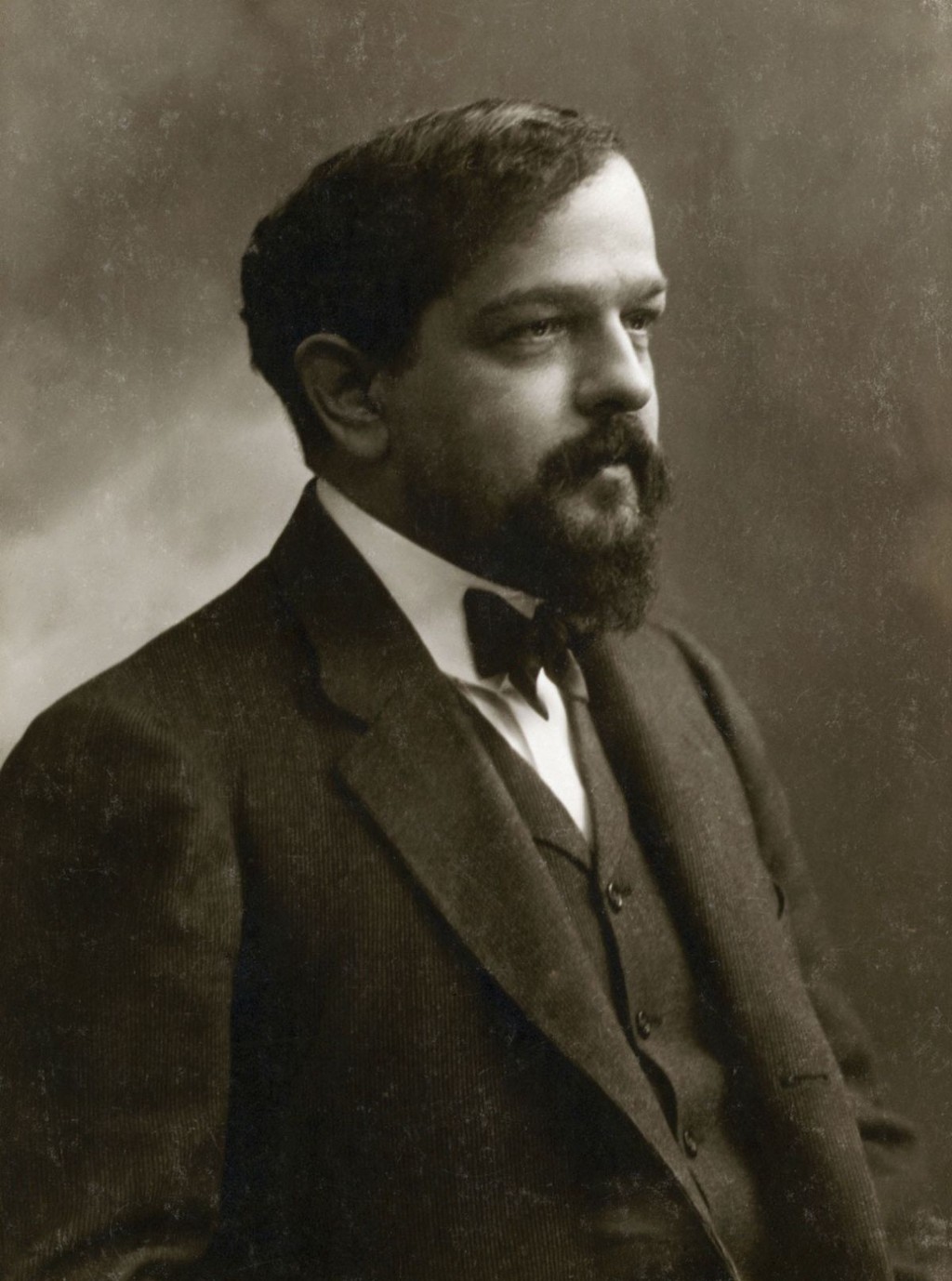
So here. Let’s listen to some Debussy. Claude Debussy was a French composer in the latter half of the nineteenth century who was technically a romantic-era composer but mostly an Impressionist (you know, water lilies, etc.). He and Maurice Ravel were the Impressionist guys of the time, harboring a love-hate relationship with one another to be explored in another column because I am trying to focus on nice things this week. I’ve always mixed them up because both of them focused on these tone poem-esque symphonies and suites. Everything was telling a story or describing a scene. It was okay if each movement sounded pretty different, not necessarily carrying over “themes,” in order to describe individual parts of a whole. Petite Suite, for example, drew heavily on poems by Paul Verlaine about nice days outside in the country. You know what literally all of us need? A nice day outside in the country.
The Petite Suite consists of four movements and was originally written for piano, premiering in 1889. It’s short, relatively speaking, only thirteen minutes in length. I know it, as mentioned above, having played the orchestral arrangement by Henri Büsser when I was in college. I prefer the orchestral version, personally, but that’s mostly because it just sounds fuller to me. I don’t know. Pick whatever you want.
The four movements are as follows:
- En bateau (sailing)
- Cortège (Retinue): Moderato
- Menuet: Moderato
- Ballet: Allegro giusto
Or also:
- On a nice country rowboat having a nice day and maybe you have a parasol, I don’t know
- Cortège and retinue are synonymous for going around with your posse of kind servants who say they like you and who knows, they probably do because you’re nice to them
- Kinda slow dance
- Faster dance
You can see why I had the fourth movement in particular stuck in my head. It’s just nice! It’s like a nice piece of music that requires no additional thought than, “hm, this is extremely nice.”
Listen to a nice piece of music while you walk around the block. It’s thirteen minutes. That is a reasonable amount of time to take a break from everything. It’s not even slow nice music. It’s upbeat nice music. Things will get stressful and bad, and the fourth movement will still be in your head, echoing around.
Fran Hoepfner is a writer who used to be a musician, but not in an acoustic guitar sense, more in the the movie Whiplash sense. As kids her age discovered the popular music of the early ’00s , Fran spent 10–15 hours a week in private lessons for piano or playing timpani in several Chicagoland youth symphonies. Because of that, she didn’t discover pop music until 2008, and now her music library is almost exclusively classical. You should listen to more classical music, not for any self-important reason, but just because it’s more accessible than you think it is. Also it’s very good.
A Poem by Maureen Miller
Shot on iPhone 6
Benign-meaning second-degree relative
just shot me a heads-up re: how I use space
(seems he/she is coming up for Thanksgiving)
leaving the rest of me behind the 8-ball
in the privacy of my own shit shot on their phone
gah seriously
the cost of doing business w/my family
some peeps like to court controversy I guess
that’s so like them, to have this terrifying immediacy
Maureen Miller is a pathologist in New York (doctorwritermaureenmiller.tumblr.com).
The Poetry Section is edited by Mark Bibbins.
Let's Dish
I am going to watch the F out of the Leah Remini Scientology docuseries

There is truly nothing more American than Scientology. A cishet white dude made a creation myth, founded his own church surrounding it, and turned it into an extremely insular, lucrative business that relies heavily on the suffering of its members. This is, weirdly, the kind of behavior the Puritans were laughed out of Europe for being so into. Scientology’s also tied to the extremely American showbusiness industry, one of our great contributions to world culture (second only maybe to something like war or having a wild ‘tude).
Anyway, former King of Queens actor and Scientologist Leah Remini recently escaped the church, and is releasing a docuseries for A&E about what that’s been like. In 2015, she released a memoir that detailed a lot of her own experiences (and her concerns about Scientology’s safety and legitimacy), but now it looks like she’s interviewing other people whose lives have been touched by the organization.
For Remini, one of the major deterrents from the church was the disappearance of dear friend (and wife of the church’s leader) Shelly Miscavige. Miscavige hasn’t been seen or heard from in nearly ten years, and from the looks of the trailer, Remini’s docuseries does not paint a flattering picture of husband David:
Will she flat-out accuse him of killing his wife? Holding her hostage? Sending her to Mars? There’s only one way to find out.
Also! If you haven’t watched HBO’s Scientology documentary Going Clear yet, I highly rec that you do as an appetizer for this eight-part television event. Prior to seeing that, my understanding of the church was essentially, “Something about aliens and the word Xenu?” But after the documentary I’m able to say things like, “Seems bad!” and, “It’s a cult!” and, “I wonder if Tom Cruise and David Miscavige are dating!”
So feel free to watch Going Clear on HBO Go and then let me know if you think Tom and David have boinked. That’d actually be a huge favor. You can tweet your opinions and any resulting slash fic to @christinefriar—I will be standing by.
And if you haven’t abandoned your life to join Sea Org after that experience, Leah Remini: Scientology and the Aftermath will air on A&E Tuesday, Nov. 29 at 10 p.m. (and hopefully appear on pirating sites minutes thereafter).
Cut Copy, 'January Tape'
How long does it take to go from lovable loser to execrable asshole?

Remember when the Boston Red Sox finally won a World Series again back in 2004? America was so happy for their fans. And then a couple of months went by and they turned into total loathsome fuckfaces, morphing before our eyes into Major League Baseball’s second-most detestable fanbase? (Cardinals supporters, you’re always champs to me.) I would share similar worries about Cubs fans but the good news is so many of them don’t give a shit about baseball: they barely give a shit about the Cubs. They just like the attention. Now that they’ve won they will forget about everything until the team makes another run next autumn, and even then it won’t be “as special as it was last year.” So I think we can all feel safe this time around in congratulating the Chicago Cubs for finally doing what the Chicago White Sox managed to do much more efficiently a little over a decade ago. Also, oh my God, I am too old to stay up for games like that anymore, RT if you agree.
Hey, you know what’s great and will never get annoying? Cut Copy’s January Tape. If you need some transporting music in your life right now — and given everything that is happening all around you, there is no way that you do not — it does the trick and then some. Please make some time to check out it. There’s a video sampler below, and if you go here and click the cassette there is more. I hope you enjoy.
New York City, November 1, 2016

★★★ Inside the long shadows pointing west, gum spots caught reflected light returning and gleamed like coins. The sun took the bite off the morning chill, and then clouds took the blinding sharpness off the sun. Faces looked chapped and roughened from the returning cold. Steam was blowing out of a storm-drain grate. The late clouds were an uneven layer of overcast with blue spots worn through; with the lowering of the sun, their whiteness vanished and the full remaining blue above them shone through.

